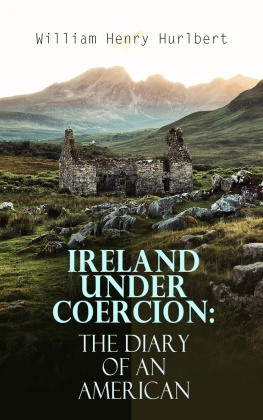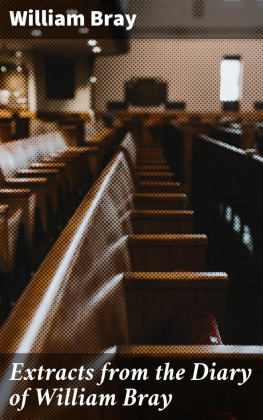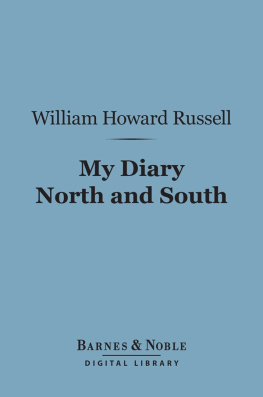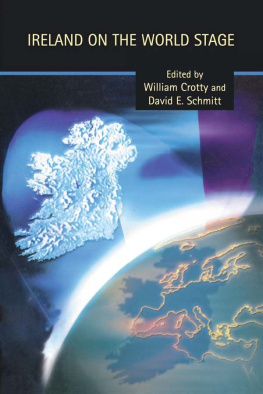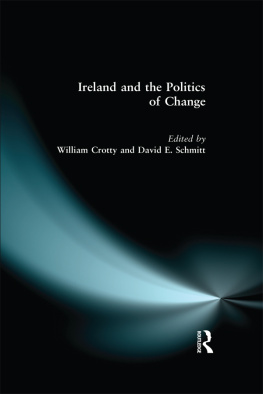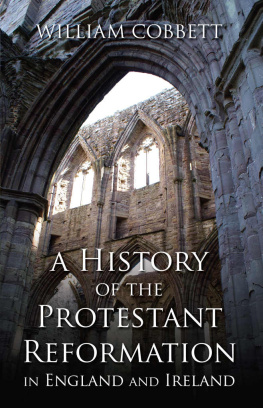PREFACE TO THE SECOND EDITION.
Table of Contents
Although barely a month has elapsed since the publication of these volumes, events of more or less general notoriety have so far confirmed the views taken in them of the actual state and outlook of affairs in Ireland, that I gladly comply with the request of my publisher for a Preface to this Second Edition.
Upon one most important pointthe progressive demoralisation of the Irish people by the methods of the so-called political combinations, which are doing the work of the Agrarian and Anti-Social Revolution in Ireland, some passages, from a remarkable sermon delivered in August in the Cathedral of Waterford by the Catholic bishop of that diocese, will be found to echo almost to the letter the statement given to me in June by a strong Protestant Home Ruler, that the Nationalists are stripping Irishmen as bare of moral sense as the bushmen of South Africa.
Speaking of what he had personally witnessed in one of the lanes of Waterford, the Bishop says, in the report which I have seen of his sermon, the most barbarous tribes of Africa would justly feel ashamed if they were guilty of what I saw, or approached to the guilt I witnessed, on that occasion. As a faithful shepherd of his people, he is not content with general denunciations of their misconduct, but goes on to analyse the influences which are thus reducing a Christian people to a level below that of the savages whom Cardinal Lavigerie is now organising a great missionary crusade to rescue from their degradation.
He agrees with Archbishop Croke in attributing much of this demoralisation to the excessive and increasing use of strong drink, striking evidences of which came under my own observation at more than one point of my Irish journeys. But I fear Archbishop Croke would scarcely agree with the Bishop of Waterford in his diagnosis of the effects upon the popular character of what has now come to pass current in many parts of Ireland as patriotism.
The Bishop says, The women as well as the men were fighting, and when we sought to bring them to order, one man threatened to take up a weapon and drive bishop, priests, and police from the place! On the Quay, I understand, it was one scene of riot and disorder, and what made matters worse was that when the police went to discharge their duty for the protection of the people, the moment they interfered the people turned on them and maltreated them in a shocking way. I understand that some police who were in coloured clothes were picked out for the worst treatmentknocked down and kicked brutally. One police officer, I learn, had his fingers broken. This is a state of things that nothing at all would justify. It is not to be justified or excused on any principle of reason or religion. What is still worse, sympathy was shown for those who had obstructed and attacked the police. The only excuse I could find that was urged for this shameful misconduct was that it was dignified with the name of patriotism! All I can say is, that if rowdyism like this be an indication of the patriotism of the people, as far as I am concerned, I say, better our poor country were for ever in political slavery than attain to liberty by such means.
This is the language of a good Catholic, of a good Irishman, and of a faithful Bishop. Were it more often heard from the lips of the Irish Episcopate the true friends of Ireland might look forward to her future with more hope and confidence than many of the best and ablest of them are now able to feel. As things actually are, not even the Papal Decree has yet sufficed to restrain ecclesiastics, not always of the lowest degree, from encouraging by their words and their conduct patriotism of the type commemorated by the late Colonel Prentiss of Louisville, in a story which he used to tell of a tipsy giant in butternut garments, armed with a long rifle, who came upon him in his office on a certain Fourth of July demanding the loan of a dollar on the ground that he felt so confoundedly patriotic!
The Colonel judiciously handed the man a dollar, and then asked, Pray, how do you feel when you feel confoundedly patriotic?
I feel, responded the man gravely, as if I should like to kill somebody or steal something.
It is patriotism of this sort which the Papal Decree was issued to expel from within the pale of the Catholic Church. And it is really, in the last analysis of the facts of the case, to the suppression of patriotism of this sort that many well-intentioned, but certainly not well-informed, sympathisers with what they suppose to be the cause of Ireland, object, in my own country and in Great Britain, when they denounce as Coercion the imprisonment of members of Parliament and other rhetorical persons who go about encouraging or compelling ignorant people to support boycotting and the Plan of Campaign.
Yet it would seem to be sufficiently obvious that patriotism of this sort, once full-blown and flourishing on the soil of Ireland, must tend to propagate itself far beyond the confines of that island, and to diversify with its blood-red flowers and its explosive fruits the social order of countries in which it has not yet been found necessary for the Head of the Catholic Church to reaffirm the fundamental principles of Law and of Liberty.
Since these volumes were published, too, the Agrarian Revolution in Ireland has been brought into open and defiant collision with the Catholic Church by its leader, Mr. Davitt, the founder of the Land League. In the face of Mr. Davitts contemptuous and angry repudiation of any binding force in the Papal Decree, it will be difficult even for the Cardinal-Archbishop of Sydney to devise an understanding between the Church and any organisation fashioned or led by him. It may be inferred from Mr. Davitts contemporaneous and not less angry intimation, that the methods of the Parnellite party are inadequate to the liberation of Ireland from the curse of landlordism, that he is prepared to go further than Mr. George, who still clings in America to the shadowy countenance given him by the Cardinal-Archbishop of Baltimore, and that the Nationalisation of the Land will ere long be urged both in Ireland and in Great Britain by organisations frankly Anti-Catholic as well as Anti-Social.
This is to be desired on many accounts. It will bring the clergy in Ireland face to face with the situation, which will be a good thing both for them and for the people; and it should result in making an end of the pernicious influence upon the popular mind of such extraordinary theological outgivings; for example, as the circular issued in 1881 to the clergy and laity of Meath by the Bishop of that diocese, in which it was laid down that the land of every country is the common property of the people of that country, because its real owner, the Creator who made it, has transferred it as a voluntary gift to them.
Language of this sort addressed to ignorant multitudes must do harm of course whenever and by whomsoever used. It must tend to evil if addressed by demagogues to the Congress of a Trade Union. But it must do much more harm when uttered with the seeming sanction of the Church by a mitred bishop to congregations already solicited to greed, cunning, and dishonesty, by an unscrupulous and well-organised agitation.
Not less instructive than Mr. Davitts outburst from the Church is his almost furious denunciation of the Irish tenants who obeyed an instinct, thought honourable to mankind in most ages and countries, by agreeing together to present to their landlord, Earl Fitzwilliam, a token of their respect and regard on the celebration of his golden wedding day.

